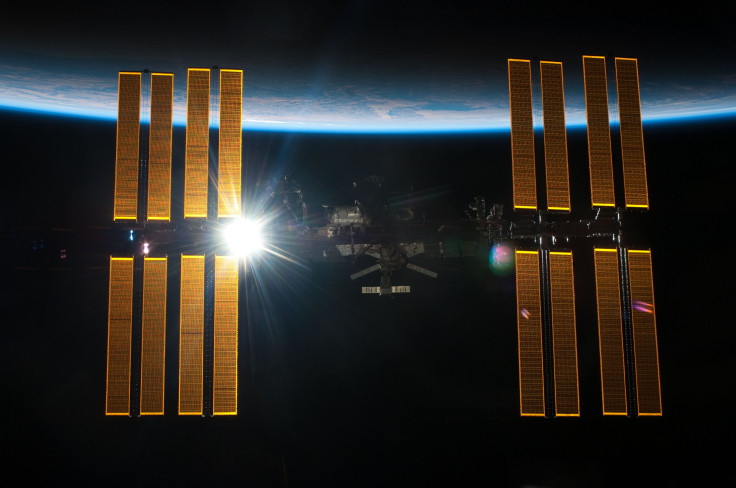Space Station Chores: Keeping ISS Clean, Free Of Germs

Astronauts have some really fun chores like conducting space experiments and going on space walks to maintain the International Space Station. But think about how easy it would be to clean without gravity holding you down. Dusting the highest corners would be a breeze and you wouldn’t have to hunch over to clean the floor.
The ISS is actually kept cleaner than a lot of places on Earth, NASA’s Jet Propulsion Laboratory said. Everything that is sent to the station has to be meticulously cleaned to ensure it won’t bring any tiny microorganisms up to the station. Even the astronauts are quarantined for 10 days before launch. All of these precautions plus astronauts regularly cleaning the station makes for a pretty spotless facility.
Read: Artificial Organs On Space Station Could Lead To Medical Advancements
In addition to keeping the ISS clean, the astronauts take samples from each United States module of the station every two months and culture them on plates with growth hormones. Then they send them back to Earth for testing to see what organisms are growing.
Saturday morning on the International Space Station - cleaning!!!! pic.twitter.com/KCcPauSm
— Sunita Williams (@Astro_Suni) July 21, 2012
The water on the station is also treated, just like our water on Earth, to kill microorganisms and prevent growth. The water is sent home for testing every three months. They used to do it every month but stopped because it was always so clean.
Even with all the cleaning, the space station still has a lot of the same microorganisms you would find at your desk or in your house on Earth, NASA said. Most of them pose no threat to the astronauts on board but they’re monitored anyway to make sure they can’t end up making the astronauts sick. When something potentially harmful is found, an even more thorough cleaning is conducted.
Some organisms can seem dangerous, or out of place, so in the interest of keeping the astronauts safe and avoiding the possibility of them getting sick, NASA researchers are careful to take each bug they find seriously.
Read: 10 Of The Most Exciting NASA Missions Scheduled To Launch In The Next 5 Years
NASA has been studying the organisms in space for years. In 2013 a long-term research study was started to track how being in space changed the microbiome of astronauts who spend time in the ISS. Microbiome is the name for all the organisms that live on the human body. Samples taken from the astronauts are analyzed periodically to track how their microbiomes change, if they do at all. This also helps researchers monitor the immune systems of the astronauts, the study’s description says. Information like this is key to discovering how long-term space travel like that required to reach deep space, or Mars, could impact humans.
© Copyright IBTimes 2024. All rights reserved.











